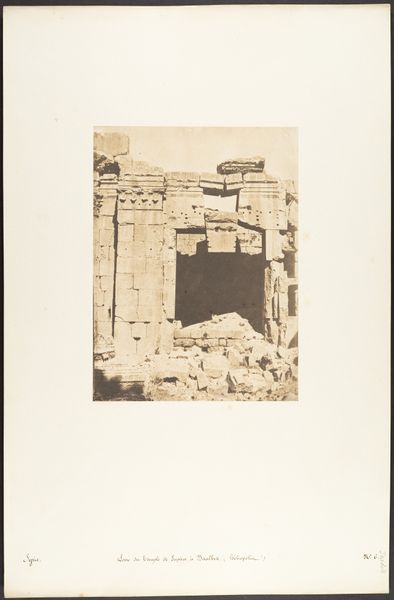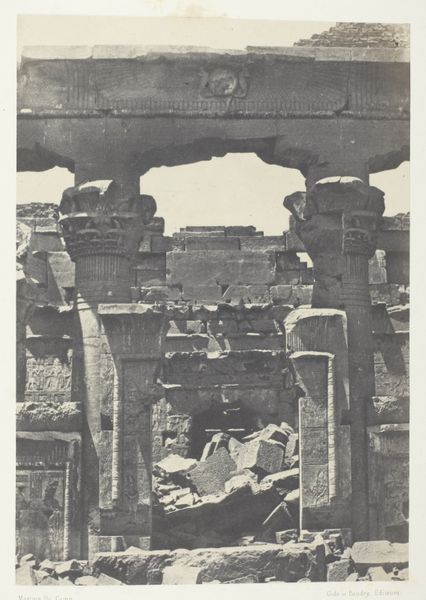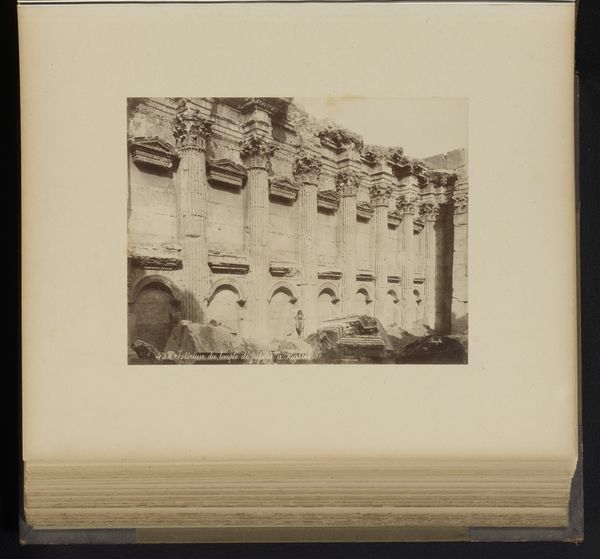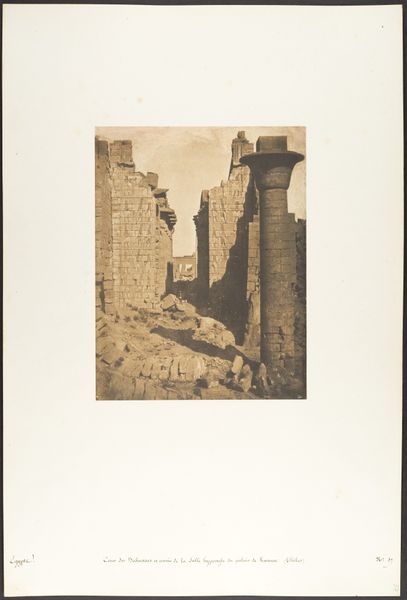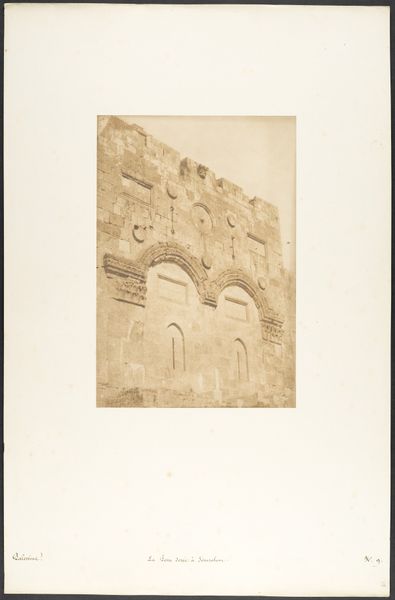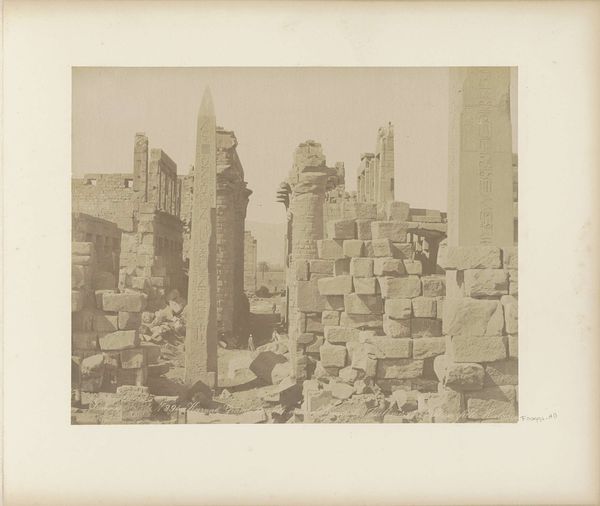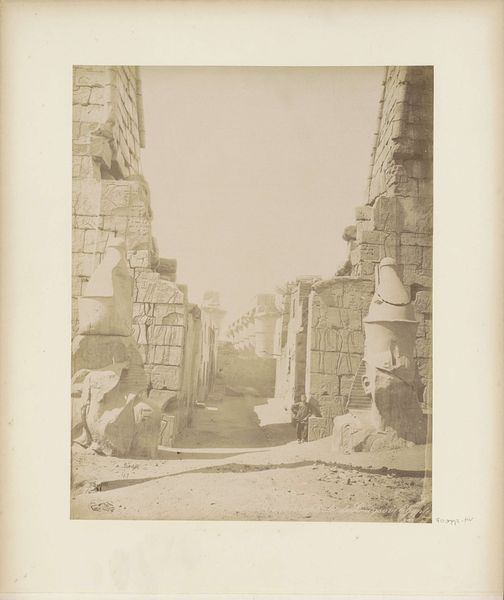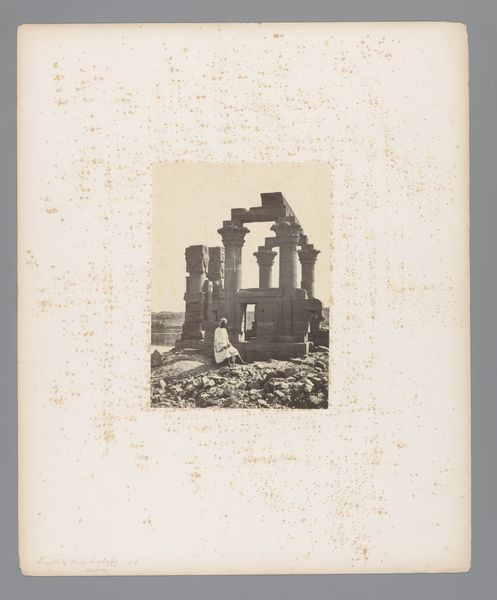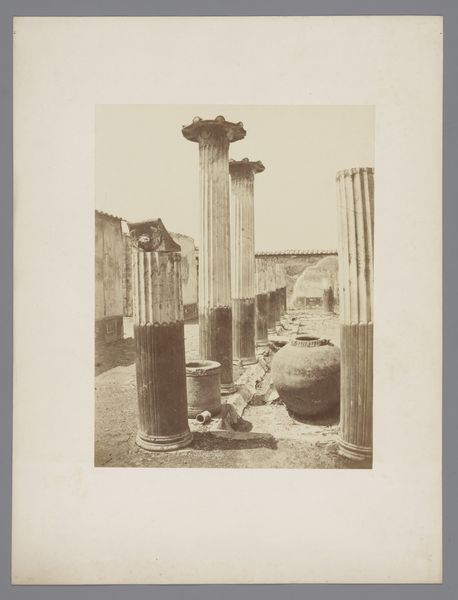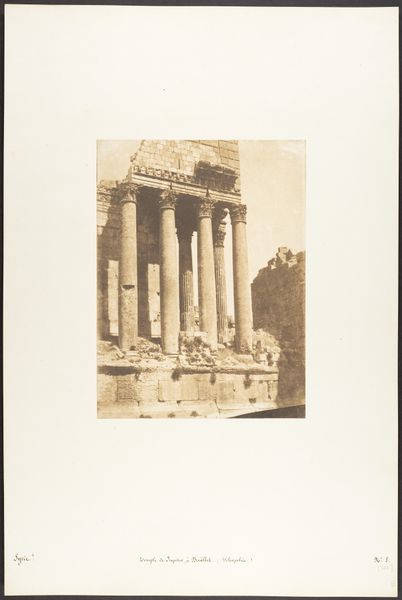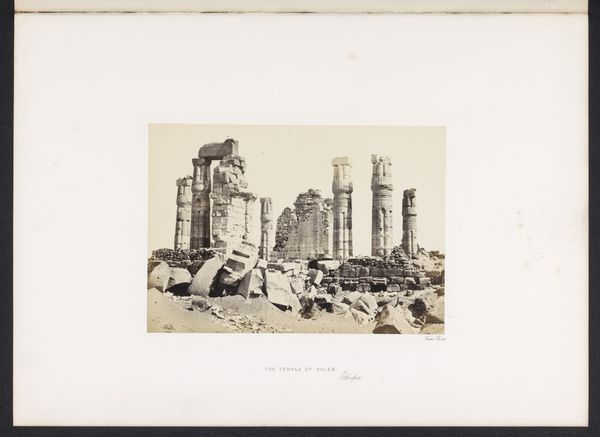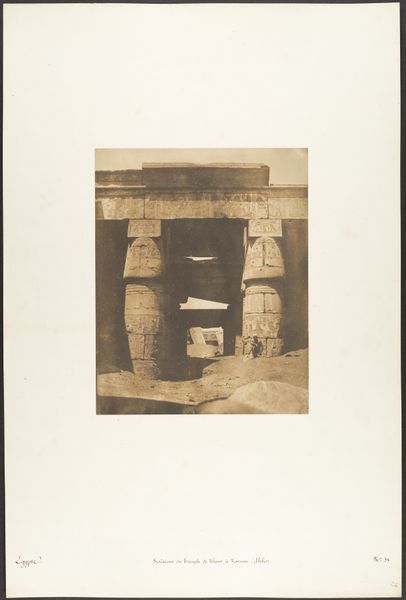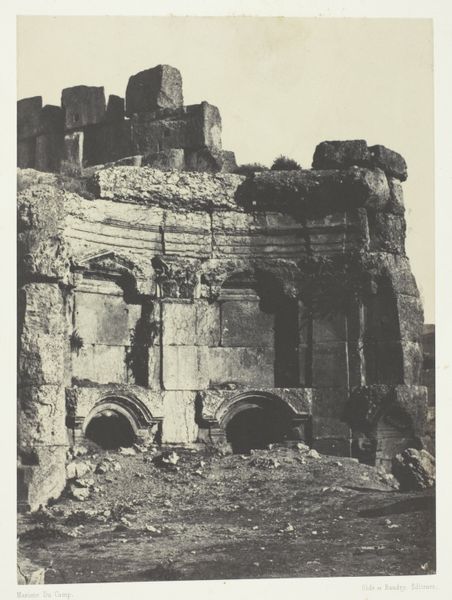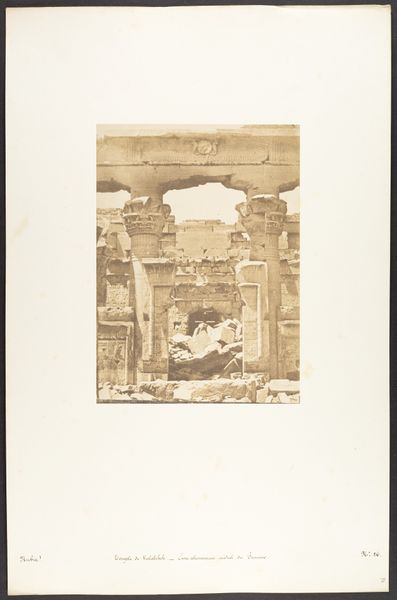
Colonnade intérieure du Naos du Temple de Jupiter, à Baâlbek (Héliopolis) 1850
0:00
0:00
print, photography, gelatin-silver-print, architecture
# print
#
landscape
#
photography
#
ancient-mediterranean
#
orientalism
#
gelatin-silver-print
#
cityscape
#
architecture
Dimensions: Image: 8 3/4 × 6 1/2 in. (22.2 × 16.5 cm) Mount: 12 5/16 × 18 11/16 in. (31.2 × 47.5 cm)
Copyright: Public Domain
Maxime Du Camp captured this view of the Temple of Jupiter’s colonnade in Baâlbek using the salted paper process. The Corinthian columns, with their ornate capitals of acanthus leaves, evoke the grandeur of Roman imperial power and religious syncretism. Their fluted shafts and decorative carvings aren't merely architectural; they're laden with symbolic meaning. These columns echo those of ancient Greece, embodying a classical heritage appropriated and transformed by the Romans. Notice how similar columns appear in Renaissance paintings. In Botticelli’s Annunciation, classical columns create a sacred space. The same motif recurs, yet the message has shifted. The symbolic language is ever changing. This image's power resides in its testament to cultural memory. What we see here are not just stones but echoes of shared human experiences across millennia.
Comments
No comments
Be the first to comment and join the conversation on the ultimate creative platform.
